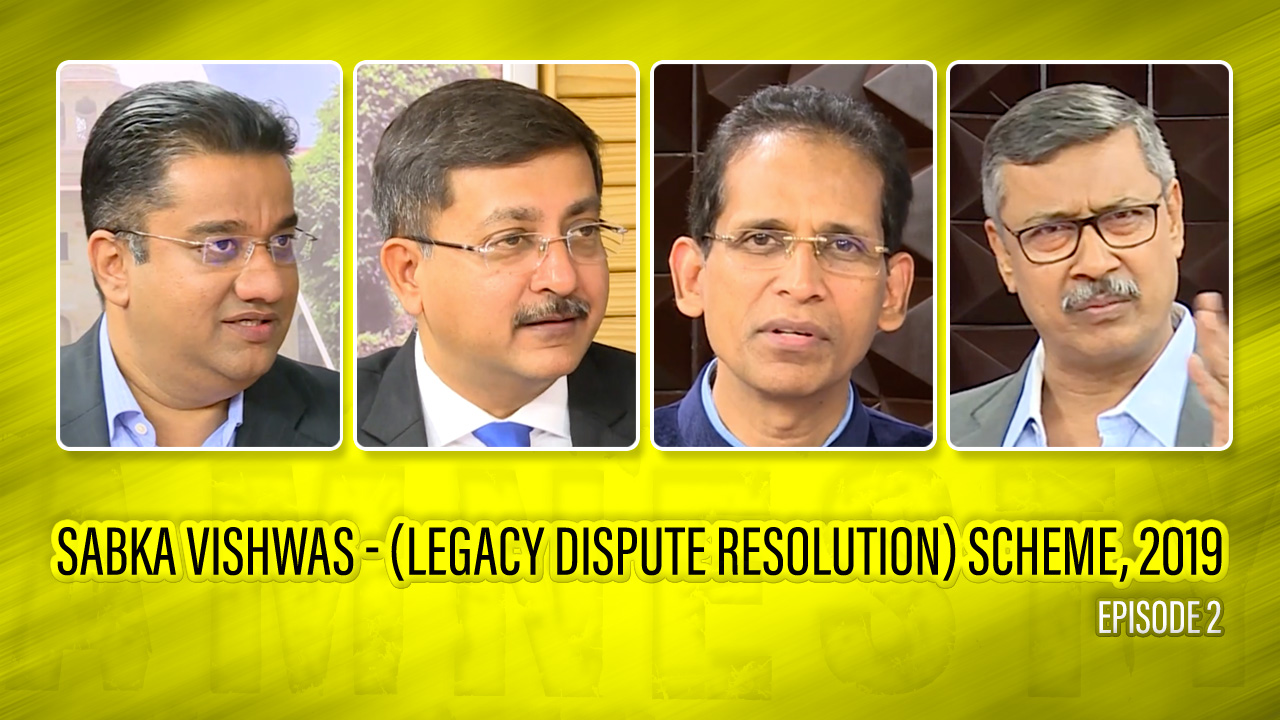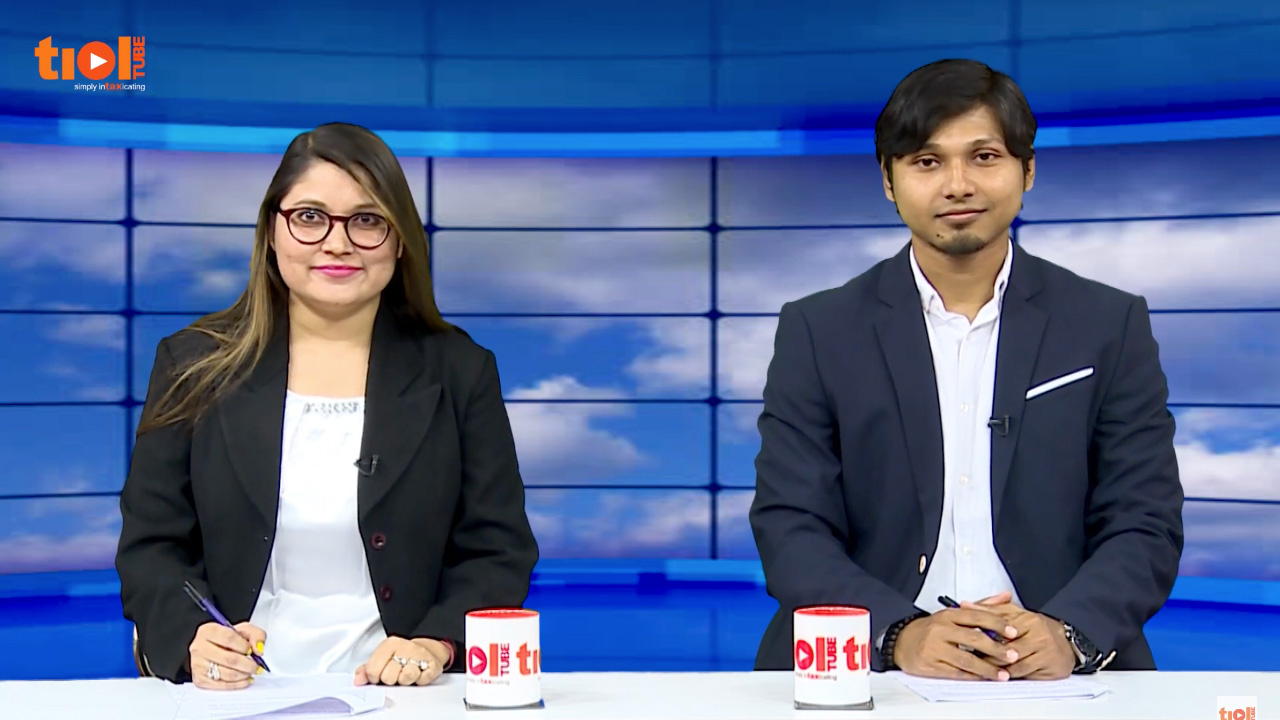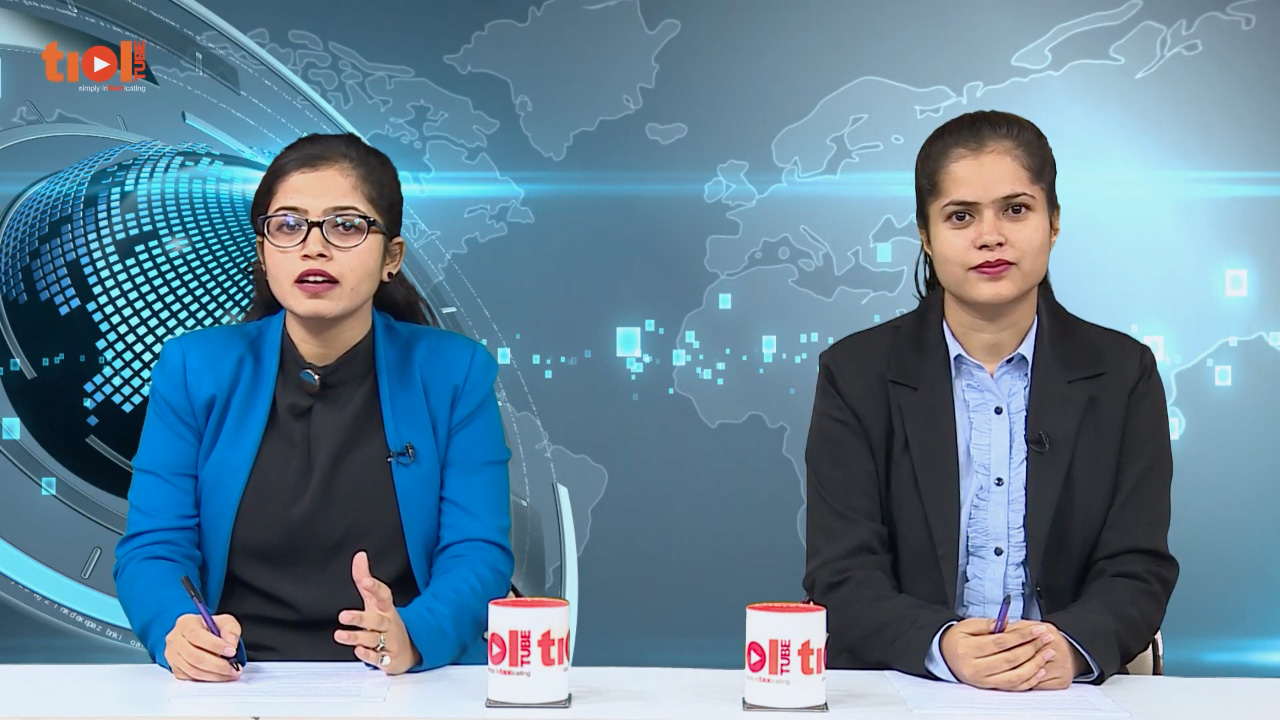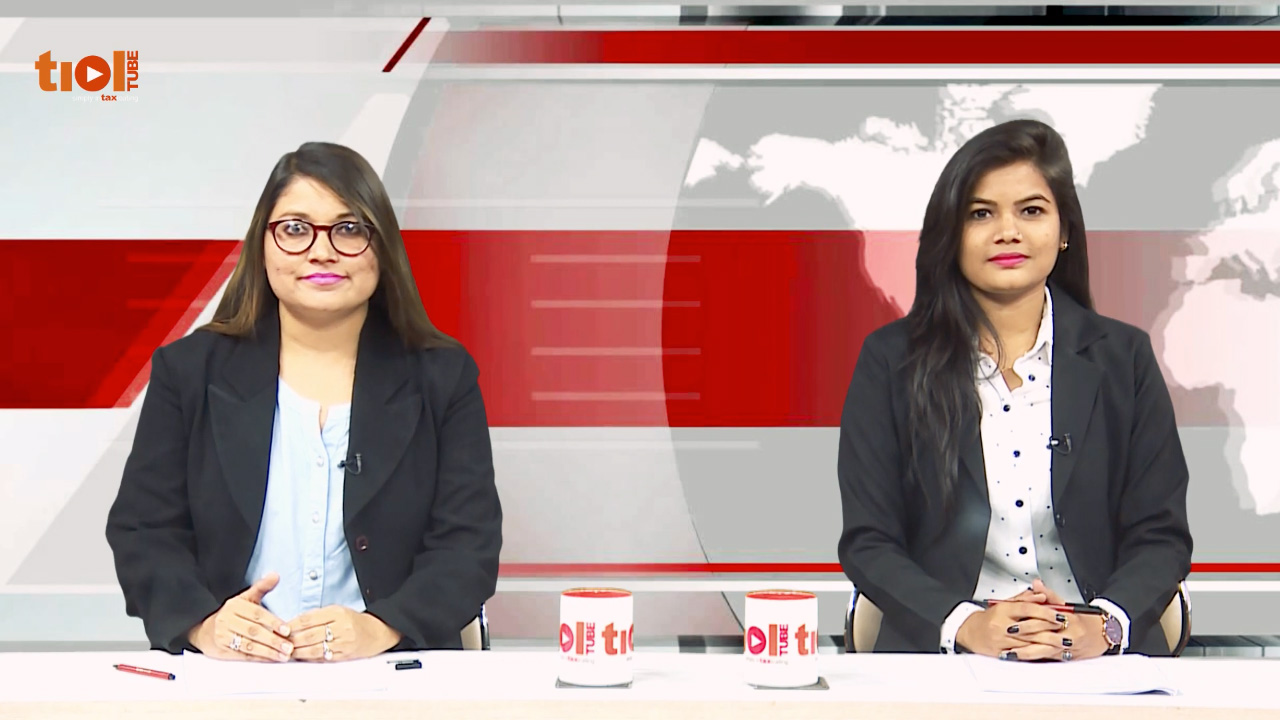|
SERVICE TAX
Vodafone Essar South Ltd Vs CCE
ST - The assessee-company is engaged in providing telecommunication services - During the relevant period, an SCN was issued to the assessee stating that it had availed Cenvat credit on input services such as construction service, clearing & forwarding service, real estate service, architect service, cleaning service, GTA service, Insurance service & Interior Decorator Service - The SCN alleged that these services were not admissible input services for availing Cenvat credit - Hence it proposed to raise duty demand u/r 14 of CCR 2004 - On adjudication, the credit in respect of three services was allowed while credit on the remaining services was disallowed - Hence the present appeal.
Held - Telecommunication service - It is undoubted that the assessee used wireless equipment for providing telecommunication service and used radio antennae to transmit & receive signals - Such antennae are an integral and essential part of the service & as they are mounted on towers, civil work is necessary for erection of towers - Construction service is hence an integral part of telecommunication service and is used for providing output service - Hence the same qualifies as an input service: CESTAT
Held - Clearing & Forwarding service - The assessee claimed that the scope of such service included obtaining the requisite Customs clearance at the port for the goods imported by the assessee & forwarding them to the assessee - The goods imported include hardware and software part of the Base Station Controller as well as optical fibre cables - The assessee claimed that BSC is an integral part of the mobile cellular phone network and hence is directly involved in provision of output service - As the clearing and forwarding service is received for procurement of inputs, the credit is admissible - Such submissions of the assessee hold weight and hence the credit merits being allowed: CESTAT
Held - Real Estate service - The assessee used such service for procuring suitable plits for construction of the assessee's shops - It is in relation to the assessee's business and hence is eligible as input service - Such observations are backed by the decision of the Tribunal in Delta Energy Systems Ltd. Vs. Commissioner Of C. Ex., Delhi-III - Hence credit is allowed on all three services: CESTAT
- Assessee's appeal allowed: ALLAHABAD CESTAT
Voltas Ltd Vs CCE & ST
ST - Assessee is engaged in manufacturing and marketing of air conditioners, forklifts trucks and also undertake turnkey projects for the installation of Heating, Ventilation and Air Conditioning systems and Water Management systems - During audit, the Revenue sought to tax certain transactions under Maintenance, Management and Repair service - The primary nature of service is of Operation, and Maintenance and Repair is incidental to provision of service of Operation - In this circumstance, the decision of Tribunal in case of Shiv Shakti Electricals - 2019-TIOL-819-CESTAT-DEL becomes relevant - In identical circumstances, the Tribunal in case of Genting Lanco (India) Pvt. Limited - 2019-TIOL-239-CESTAT-HYD has held that the main activity relates to Operation, and Maintenance and Repair in process of Operation, demand cannot be sustained under category of Maintenance, Management and Repair service - Moreover, assessee has also claimed benefit of limitation - Tribunal has also held that the view harbored by assessee may be bonafide - Thus extended period of limitation cannot be invoked: CESTAT
- Appeal allowed: AHMEDABAD CESTAT
Xerox India Ltd Vs CCE & ST
ST - Assessee is engaged in business of manufacture/import and sale of photocopiers, printers, scanners, fax machines, MFDs, their parts and accessories and are providing the service of maintenance of said products - The assessee has undertaken the service activities of Maintenance and Repairs as per the contract of Full Service Maintenance Agreements (FSMA), Spares and Service Agreements (SSMA), Volume Based Service Agreements (VBSA) and Annual Maintenance Contracts (AMC) - For the said agreements, assessee charged service tax on the standard percentage of labour deduction allowed under State Sales Tax/ VAT provisions and depositing the same - The assessee has also undertaken the activity of printing of bills and the Revenue entertained the view that the said activity falls under BAS, therefore, a SCN was issued to assessee and the adjudicating authority dropped the demand under category of BAS - Both the issues have been settled by Tribunal in - 2018-TIOL-2607-CESTAT-MAD - It is held therein that Appellant is engaged in the activity of printing of bill and not 'Billing' and, therefore, services in question do not qualify under the category 'Business Auxiliary Service' - As the issues have already been settled by this Tribunal in assessee's own case, therefore, assessee is not liable to pay service tax under category of Maintenance or Repair Service and the Commissioner has rightly dropped the demand under category of BAS - Assessee's appeal is allowed and the Revenue's appeal is dismissed: CESTAT
- Appeal dismissed: CHANDIGARH CESTAT
CENTRAL EXCISE
NCL Industries Ltd Vs CCT
CX - The assessee is manufacturer of cement which they sell to various customers - They also avail the benefit of Cenvat Credit under CCR, 2004 - The short point to be decided is whether the assessee is entitled to Cenvat Credit on GTA Services availed for transport of cement from their factory to the buyer's premises after the amendment to Rule 2(l) of CCR, 2004 w.e.f. 01.03.2008 when the credit has been restricted to services availed for transportation upto the place of removal - This needs to be examined in the light of assessee's claim that the cement which they sell is on FOR basis and therefore, the buyer's premises should be considered as place of removal - Accepting the arguments of assessee in Ultratech Cement - 2018-TIOL-42-SC-CX, Commissioner (A), CESTAT as well as the High Court of Karnataka held that the assessee is entitled to Cenvat Credit on the transport of goods to the buyer's premises - The facts of the case in present set of appeals being identical to the case of Ultratech Cement inasmuch as the credit being claimed is on GTA services availed to transport cement from the factory gate to the buyer's premises on the ground that the sale being on FOR basis, the place of removal shifts to the buyer's premises and therefore Cenvat Credit is admissible, Tribunal is legally bound to follow the ratio of judgment of Apex Court which held against the assessee that no Cenvat Credit is admissible - This position was also reviewed by Apex Court and reaffirmed in the review petition: CESTAT
- Appeals rejected: HYDERABAD CESTAT
CX - The assessee is manufacturer of bulk drugs and menthol products - The products being manufactured become exempt for payment of duty w.e.f. 01.03.2008 - Revenue is of the view that as the assessees have started manufacturing exempted goods, therefore, the Cenvat credit lying in their Cenvat credit account contained in inputs/ semi finished goods/ finished goods shall lapse in terms of Rule 11 of CCR, 2004 - On going through the provisions of Rule 11 of CCR, 2004, it is true that as the assessee’s final product has become exempt from payment of duty absolutely, therefore, the assessees are not allowed to utilize the Cenvat credit lying in their Cenvat credit account - But there is no provision that "how the same shall be recovered" - Admittedly, the Cenvat credit sought to be recovered in terms of Rule 14 of CCR, 2004 and as the assessees were entitled to take the Cenvat credit at the time of availment of Cenvat credit, therefore, the same cannot be said that they have taken Cenvat credit wrongly - Further, the Cenvat credit is lying in their Cenvat credit account; therefore, the same has not been utilized by assessee wrongly - In these terms, Rule 14 is not applicable to the facts of this case - Moreover, there is no recovery mechanism has been prescribed under law as provided for recovery under Rule 3(5) of CCR, 2004 w.e.f. 01.03.2013 - Therefore, as there is no recovery provision during impugned period, the Cenvat credit shall not be recovered from assessee - No merit found in impugned order - Accordingly, the same is set aside: CESTAT
- Appeal allowed: CHNADIGARH CESTAT
CX - The assessee-company manufactures Grey Fabrics - It installed machine during the relevant period on which Cenvat credit was availed - The assessee was availing exemption under Notfn No 30/2004-CE - Thereafter, the assessee began paying duty by opting for the concessional exemption Notfn No 29/2004-CE - The Revenue claimed that at time of receipt and installation of the machines, the assessee was availing exemption under Notfn No 30/2004-CE - As per Rule 6(4) of the CCR 2004, if the capital goods were used exclusively for manufacture of exempted goods, the cenvat credit is not admissible - The Revenue alleged that at the time of receipt of capital goods, the assessee manufactured exclusively exempted goods using such machine, it was barred from availing credit on such capital goods - Hence the present appeals.
Held - As per the substituted provisions of Rule 6(4), it is clear that the bar on availing the credit in respect of capital goods used in manufacture of exempted goods shall apply only if the capital goods are used for two years from the date of installation or commencement of production - Presently, though the assessee received and installed the capital goods in their running unit in Aug 2015 but before completion of two years in August 2017, the capital goods were used for manufacture of goods which were cleared on payment of duty, availing the exemption notification no 29/2004-CE - Hence the capital goods were not used continuously for two years for manufacture of exclusively exempted goods - As the amendment is through substitution, it applies retrospectively - It was observed in manu decisions that even though initially 'Nil' rate of duty exemption under Notfn 30/2004-CE has been availed and subsequently, Notfn No. 29/2004-CE availed and paid the duty, the Cenvat Credit on capital goods is admissible - Hence the cenvat credit is admissible on the capital goods in question: CESTAT
- Assessee's appeals allowed: AHMEDABAD CESTAT
CUSTOMS
Cus - The assessee-company is engaged in import and trading of various surgical products, such as surgical tapes from China, Taiwan and Thailand - In respect of the imports so made, the assessee claimed benefit of concessional rate of duty as per Notfn No 21/2002 - The Micropore Surgical Tapes being imported by the assessee were classifiable under CTH 3005 90 60 of the Act - The Revenue opined that concessional rate of 5% BCD and nil CVD as per such Notfn were wrongly claimed by the importer as the same is available only for Skin Barriers Micropore Surgical Tapes which were used as Ostomy products for managing Colostomy, Illcostomy, Ureterostomy, Illeal Conduit Urostomy Stoma and the appellants products did not fall under the said category, inasmuch as, the same are general purpose surgical tapes and not being exclusively used as Ostomy products - Hence, pursuant to investigation, the imported goods were seized and statements of the office-bearers in the company, were taken - In respect of these products, the Revenue relied on information sourced from the Wikipedia website as well as from other websites - Thereupon, SCNs were issued proposing to deny benefit of the Notfn in respect of the current imports as well as in respect of the previous imports - The goods were proposed to be confiscated and penalties were proposed - Such proposals in the SCN were confirmed upon adjudication - Hence the present appeal.
Held - Difference of opinion - Member (J) held that purpose behind notfn is to grant exemption to products used for management of specified Ostomy procedures - Apart from covering specific Ostomy products, the Notfn also covers general purpose products - Hence exemption could not be disallowed solely because the producer in question is not used exclusively as Ostomy product - Also, merely because the tapes were used as multiple use items, the same is no reason to deny benefit of the Notfn - The Revenue cannot insert the terms solely or exclusively in the Notfn to hold that only those tapes which were exclusively used in Ostomy procedures would be eligible for the benefit - Further, the Revenue failed to establish the there were surgical tapes meant for exclusive use as Ostomy products - As per the Revenue, exemption is disallowed to surgical tapes which can be used apart from Ostomy products, as general purpose products also - In such case, it cannot be understood as to which types of surgical tapes would get covered under the Notfn as there is no specific or specially made surgical tapes meant to be used only as Ostomy products - Hence the tapes in question deserve exemption and the O-i-O merits being quashed - The duty on non-woven surgical fabrics is not contested, except for its quantification, which merits being done afresh - As the assessee is entitled for exemption, the demand with interest & penalty merits being quashed - Confiscation of the goods is also set aside - Except for duty liability not challenged by assessee, the appeal is allowed - Member (T) held that the matter warranted remand, considering that the SCN had been issued by the DRI and that there were numerous decision of the Tribunal in which matters had been remanded in such circumstances, keeping in view the decision of the Delhi High Court in Mangli Impex vs. Union of India and that final disposal of this case was pending before the Apex Court - Matter referred to Third Member: CESTAT
Held - Third Member - Perusal of the Notfn reveals there to be no requirement for producing an end-use certificate to establish that the imported products were used only for Ostomy procedures - Besides, a notification has to be interpreted literally - Besides, the language of the Notification is very clear - There is no mention that the products mentioned therein have to be exclusively used for Ostomy procedures - While only those items needed for Ostomy procedures are set out in the list, there are other products such as Adhesive seals, adhesive remover & Skin gels which can be used for Ostomy procedures as well as for general purposes - If such items also fall under the category of Ostomy products, then the goods in question which can also be used for general purpose would also fit into Ostomy products when used in relation to Ostomy procedure - The Revenue put forth no medical evidence to establish that the goods imported by the assessee are not necessary in Ostomy procedures - The only evidence relied on is medical literature obtained from websites - Moreover, List 37 does not mention that the Skin Barrier Micropore Surgical Tapes must exclusively be used for Ostomy procedures - Other products exist which can be used for procedures other than Ostomy - None of these products which can be used for general purpose are qualified by stating that the eligibility is available only if used for Ostomy - Hence the Third Member is in agreement with the findings of the Member (J) to the effect that exemption cannot be denied: CESTAT
- Assessee's appeal allowed: CHENNAI CESTAT
| |








